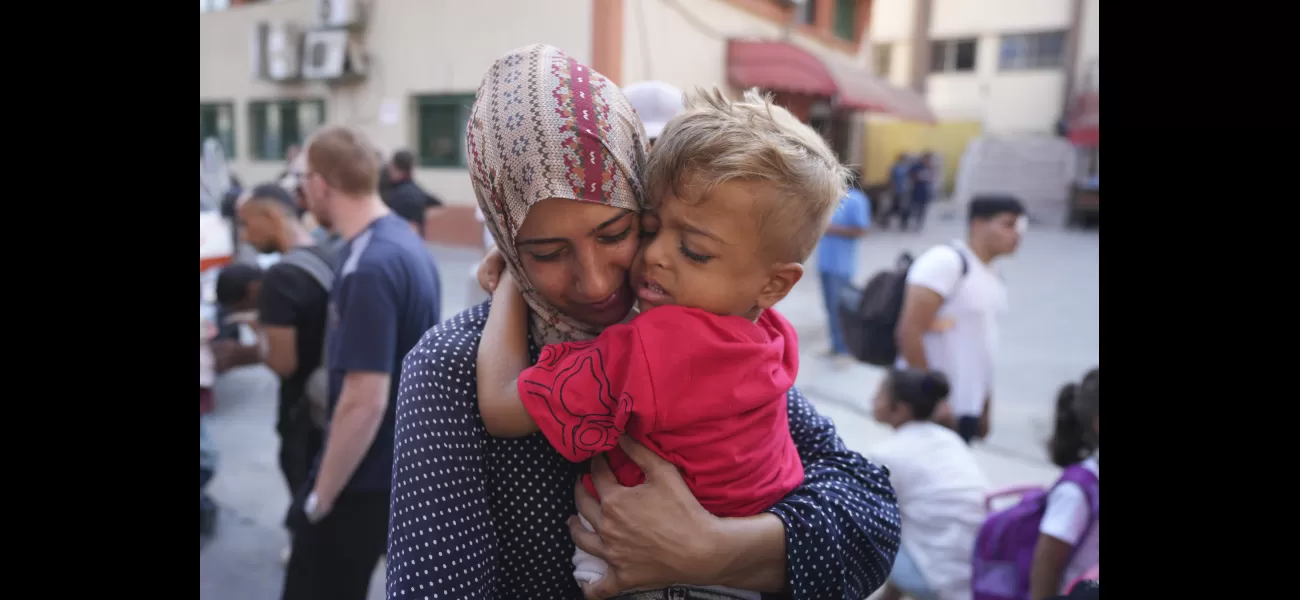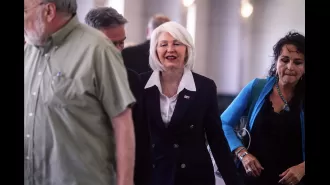Children in Gaza are being evacuated for medical treatment after weeks of being unable to leave due to conflict and restrictions.
Children, including cancer patients, have been evacuated from Gaza through the Kerem Shalom crossing, the first to leave since Israel's recent attack in Rafah.
June 28th 2024.

Recently, there has been a glimmer of hope for the families of sick and injured children in Gaza. After months of enduring the Israeli offensive, which had left them unable to access proper medical care, dozens of children were finally evacuated through the Kerem Shalom crossing. This marks the first evacuation since the offensive began in Rafah last month.
According to Israeli authorities, a total of 68 children, including 20 cancer patients, were transferred to Cairo, Egypt on Thursday. The passage was coordinated by COGAT, the Israeli agency responsible for approving aid into Gaza, along with the Israeli military, the US, Egypt, and the World Health Organization. This news provided a moment of relief for the parents who had been struggling to save their children's lives amidst the ongoing bombardment in Gaza.
One of the parents, Samira Al-Saeedi, whose six-year-old daughter Jouri was among those evacuated, shared her emotional journey with CNN earlier this week. "It was a tough time for us in northern Gaza. Nine months of exhaustion and displacement," she said. "People were resorting to stealing just to eat. It was a dire situation, especially for sick children who cannot withstand famine."
CNN footage from Nasser Hospital showed another evacuee, five-year-old Yasmin, who is suffering from blood cancer, writhing in pain on a teal mattress. Her mother, Umm Ubaida, shared the heartbreaking reality of her daughter's condition. "She is constantly moving between hospitals for blood treatments. Every day, her pain gets worse," she said. "She is extremely tired and cannot wait any longer for proper treatment."
While the evacuation of these children is a positive development, the southern Rafah crossing, a crucial transit point, remains closed despite negotiations for its re-opening. The Director-General of the World Health Organization, Tedros Adhanom Ghebreyesus, welcomed the evacuation and called for increased medical passage for all Palestinians in need.
However, as the siege on Gaza persists and the risk of famine grows, Palestinian officials have warned that this operation is only a small step towards addressing the dire situation. According to the Ministry of Health in Gaza, more than 25,000 sick people require urgent treatment abroad, including 980 children with cancer. Among them, 250 patients face the possibility of certain death.
The Israeli military campaign has not only depleted the medical system but has also drained food supplies. While Israel claims there is no limit on the amount of aid that can enter Gaza, human rights agencies argue that its strict inspection regime, restrictions on land crossings, and continuous bombing have severely hindered the flow of relief.
The offensive was launched by Israel in response to attacks by Hamas on southern Israel in October, which resulted in the deaths of at least 1200 people and the abduction of over 250 others. Since then, Israeli attacks in Gaza have killed 37,718 Palestinians and injured another 86,377, according to Gaza health officials.
Even before the war, chronically ill patients in Gaza faced numerous obstacles in accessing medical treatment abroad due to the years of partial blockade imposed by Israel and Egypt. Ahead of the evacuation on Thursday, parents described the arduous journey they had to take from the northern Kamal Adwan Hospital to the south. Many children were malnourished and dehydrated, their already severe symptoms compounded by months of limited access to food, water, and medication.
Moreover, some family members were not allowed to accompany their children, causing additional distress. Others, who were given permission to travel, were left waiting for days in a room without windows at Nasser Hospital. Shadi Mustafa Hussein Yassin, a father from central Gaza, shared his concerns for his 11-year-old son, Siraj, who was evacuated with his mother and two brothers. Siraj, a blood cancer patient, requires a sample from his father for a marrow transplant, but Shadi was not allowed to travel with them. "I submitted a request, but they said I cannot travel because I am under 60 years old," he explained.
CNN has reached out to the World Health Organization for further comment on the situation.
According to Israeli authorities, a total of 68 children, including 20 cancer patients, were transferred to Cairo, Egypt on Thursday. The passage was coordinated by COGAT, the Israeli agency responsible for approving aid into Gaza, along with the Israeli military, the US, Egypt, and the World Health Organization. This news provided a moment of relief for the parents who had been struggling to save their children's lives amidst the ongoing bombardment in Gaza.
One of the parents, Samira Al-Saeedi, whose six-year-old daughter Jouri was among those evacuated, shared her emotional journey with CNN earlier this week. "It was a tough time for us in northern Gaza. Nine months of exhaustion and displacement," she said. "People were resorting to stealing just to eat. It was a dire situation, especially for sick children who cannot withstand famine."
CNN footage from Nasser Hospital showed another evacuee, five-year-old Yasmin, who is suffering from blood cancer, writhing in pain on a teal mattress. Her mother, Umm Ubaida, shared the heartbreaking reality of her daughter's condition. "She is constantly moving between hospitals for blood treatments. Every day, her pain gets worse," she said. "She is extremely tired and cannot wait any longer for proper treatment."
While the evacuation of these children is a positive development, the southern Rafah crossing, a crucial transit point, remains closed despite negotiations for its re-opening. The Director-General of the World Health Organization, Tedros Adhanom Ghebreyesus, welcomed the evacuation and called for increased medical passage for all Palestinians in need.
However, as the siege on Gaza persists and the risk of famine grows, Palestinian officials have warned that this operation is only a small step towards addressing the dire situation. According to the Ministry of Health in Gaza, more than 25,000 sick people require urgent treatment abroad, including 980 children with cancer. Among them, 250 patients face the possibility of certain death.
The Israeli military campaign has not only depleted the medical system but has also drained food supplies. While Israel claims there is no limit on the amount of aid that can enter Gaza, human rights agencies argue that its strict inspection regime, restrictions on land crossings, and continuous bombing have severely hindered the flow of relief.
The offensive was launched by Israel in response to attacks by Hamas on southern Israel in October, which resulted in the deaths of at least 1200 people and the abduction of over 250 others. Since then, Israeli attacks in Gaza have killed 37,718 Palestinians and injured another 86,377, according to Gaza health officials.
Even before the war, chronically ill patients in Gaza faced numerous obstacles in accessing medical treatment abroad due to the years of partial blockade imposed by Israel and Egypt. Ahead of the evacuation on Thursday, parents described the arduous journey they had to take from the northern Kamal Adwan Hospital to the south. Many children were malnourished and dehydrated, their already severe symptoms compounded by months of limited access to food, water, and medication.
Moreover, some family members were not allowed to accompany their children, causing additional distress. Others, who were given permission to travel, were left waiting for days in a room without windows at Nasser Hospital. Shadi Mustafa Hussein Yassin, a father from central Gaza, shared his concerns for his 11-year-old son, Siraj, who was evacuated with his mother and two brothers. Siraj, a blood cancer patient, requires a sample from his father for a marrow transplant, but Shadi was not allowed to travel with them. "I submitted a request, but they said I cannot travel because I am under 60 years old," he explained.
CNN has reached out to the World Health Organization for further comment on the situation.
[This article has been trending online recently and has been generated with AI. Your feed is customized.]
[Generative AI is experimental.]
0
0
Submit Comment





